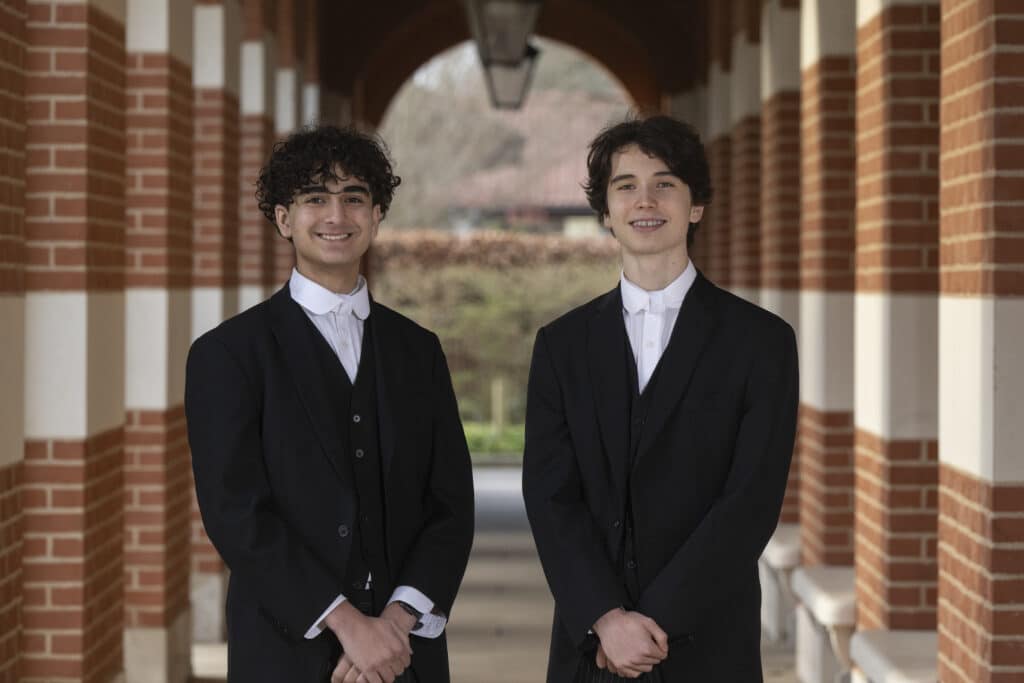Although the Chamber Orchestra have enjoyed highly successful tours in the past, this was to be the Symphony Orchestra’s first international tour. The ninety-strong tour party was made up of eighty-one boys accompanied by nine staff members.
The tour began with two days of rehearsals in Zakopane, a beautiful ski resort high up in Poland’s Tatra mountains. This proved to be a memorable start to the tour. The rehearsal studio featured a stunning floor-to-ceiling glass wall with breathtaking views of the mountains. The facilities in the hotel were equally impressive. Between rehearsals orchestra members took the opportunity to relax in the various pools and saunas, while others chose to hike up and down a nearby mountain (with varying degrees of success). On our final evening in Zakopane the tour party was treated to a highly enjoyable evening of Polish Folk music, and a traditional Polish feast.
Our first concert was given in St Katherine’s Church in Krakow, one of the city’s most prestigious musical venues. The programme included a rousing performance of Mussorgsky’s ‘A Night on a Bare Mountain’, with the church’s lively acoustic heightening the sense of drama in this atmospheric piece.
The following day involved a long coach journey to the town of Olomouc in the Czech Republic. The route took us past Auschwitz, and the orchestra spent several hours touring the former concentration camp. It was as well that nothing had been programmed for the remainder of the day and evening since it became evident that time was needed to fully comprehend this experience.
Our second concert took place in the elegant surroundings of the Archbishop’s Palace at Kromeriz, a UNESCO heritage site. The venue for the concert was the palace’s extraordinary baroque ballroom, immediately recognisable as the location for several scenes in the film ‘Amadeus’. An audience of around 300 enjoyed a concert which included Wagner’s Die Meistersinger Prelude and a highly energetic performance of Bernstein’s Three Dance Episodes from ‘On the Town’. However, the opportunity to perform Haydn’s Symphony No.104 in this extraordinary space was undoubtedly the highlight of the evening.
The final stop on the ten-day tour was Prague. The orchestra enjoyed a rare day off on their first day in the Czech capital, with the tour party spending time sightseeing before experiencing a Czech folk evening in the brewery of a local monastery. The evening took an unexpected twist when the Czech folk group inexplicably began to play Verdi’s ‘Chorus of the Hebrew Slaves’, with the 90-strong tour party erupting into an impassioned rendition of “As we sat by the waters of Babylon”, much to the bemusement of the locals. For many however the highlight of the evening was an extremely impressive demonstration of folk dancing from the Head of Strings, having been hauled to his feet by the Czech dancers.
Undoubtedly the musical focal point of the tour was the final concert. This was to be given in the world-famous Dvorak Hall (the ‘Rudolfinum’), home of the Czech Philharmonic Orchestra. The concert, which was enjoyed by an audience of over 500, proved to be a truly remarkable experience. We were delighted that over 100 members of the Eton community travelled to Prague to support. The programme included Weber’s Clarinet Concerto No.2 (soloist: Han Kim), two Slavonic Dances by Czech composer Antonin Dvorak, and Walton’s Crown Imperial and Henry V Suite. It was the experience of performing the Slavonic Dances in this setting, a hall in which Dvorak himself had conducted on many occasions, which proved for many of us to be the standout experience of the tour.
The orchestra’s first tour was a great success. Our thanks must go to everyone who made it possible – the accompanying masters and dames, those who supported financially, our tour agents Specialised Travel, who pulled out all of the stops for us, and lastly to Angela Pearce, who masterminded the logistics of getting an 80-piece symphony orchestra (and around 100 instruments including five double basses, ten cellos, and a large percussion section) to the other side of Europe and back, without ever losing her cool. Angela returned to the UK only to find that, while she’d been away, her husband had lost their eight-year-old son’s violin.



